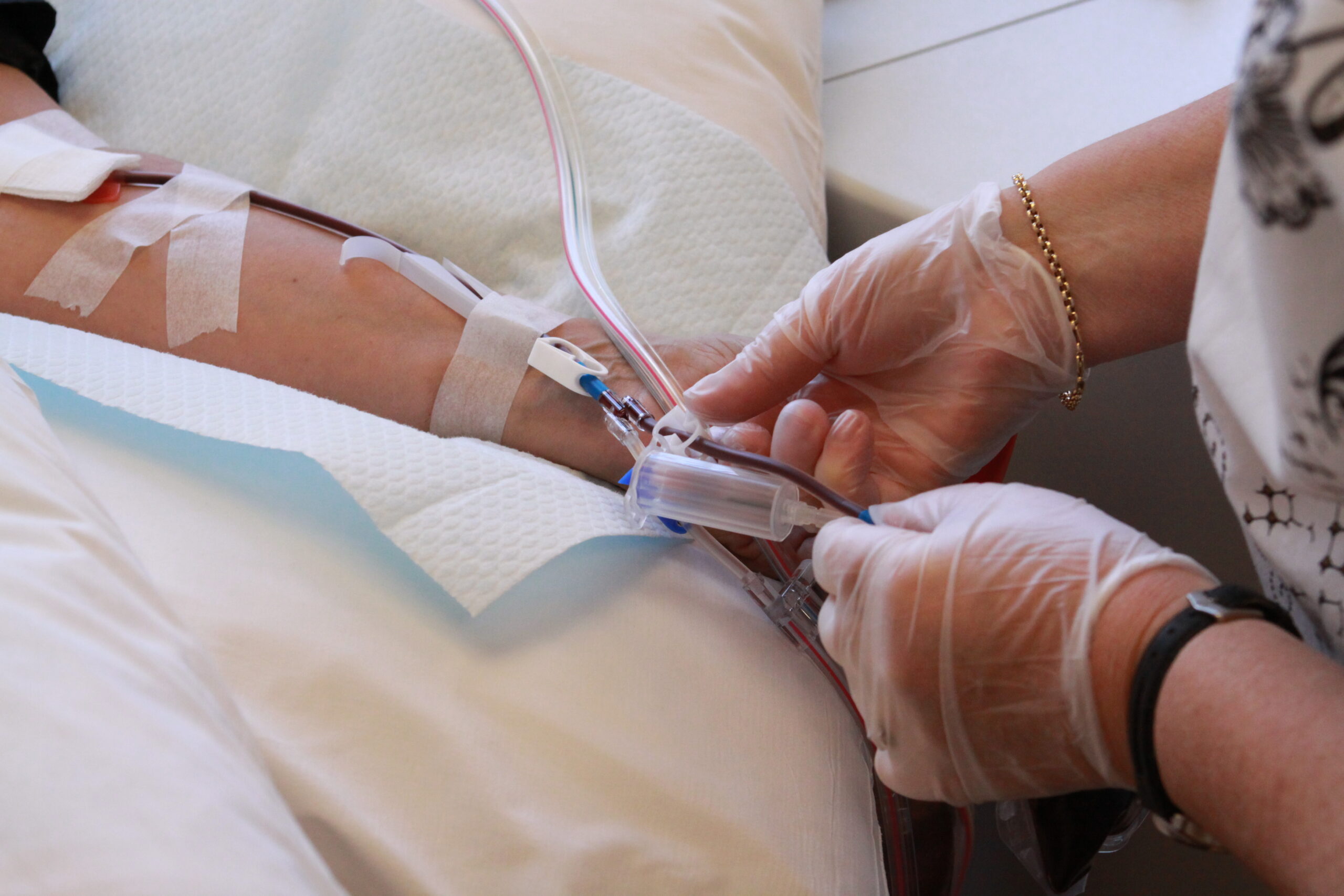Photo Credit: Canadian Blood Services
How we can all support the healthcare system through this crisis
In surgical residency, I find that after 2:00am I tended to have less patience. Sipping lukewarm coffee, I click the refresh button on the screen more often than was probably reasonable, hoping the results will appear. In these early hours we wait for the morning laboratory results to return in the intensive care unit. We find out if the patient on the ventilator for failing lungs had enough oxygen in their blood. We find out if the patient on constant dialysis for failing kidneys had balanced electrolytes in their blood. We find out if the car crash victim who just came out of the operating room had enough blood, period.
I never thought we wouldn’t have enough blood to give.
With the current coronavirus pandemic disrupting daily life for everyone and sowing a sense of helplessness in its wake, we will soon find ourselves with a dangerous deficit of emergency resources we once took for granted – blood, platelets, and plasma.
While we all diligently practice social distancing across the Harvard system, we all may desire to do more, but many are unsure how. We have transitioned to a Zoom world that for many of us falls short of delivering the human connectedness we crave. A short trip outside of our homes to our local Red Cross donation center can serve both of these needs: to provide support to the health care system in this crisis, and to maximize our connection to one another. What greater connection is there than giving the gift of life?
Donating blood through the American Red Cross saves lives. The American Red Cross provides 40% of the nation’s blood product supply, and due to the coronavirus pandemic, blood drives across the nation have been cancelled.
Surely, we should have an ample supply stocked up for situations such as these? Unfortunately, over time the blood products break down and can no longer be used. Donated red blood cells last at most 42 days, while platelets last a meager 5 days. Eligible individuals can donate whole blood every 56 days, platelets every 7 days, or make a Power Red donation every 112 days. Already a couple of weeks in to cancellations and restricted movement, it’s clear that a shortage of blood can quickly become a reality. Deciding which patients receive critical blood transfusions and which ones do not is a decision that we can avoid if we all act.
As hospitals across the country cancel elective surgeries to maximize available resources for the influx of COVID-19 patients we expect, there will still be urgent and emergent cases. Car accidents, cancer, and childbirth carry on in the face of pandemic.
It is unconscionable to allow this crisis to compromise our ability to care for one another if we can collectively do something about it.
Granted, in good times only about 40% of us meet blood donation criteria, and with stricter screening policies that number drops even further. But currently, only 3% of those of us who are eligible are donating. We must raise that anemic statistic.
But is it safe to leave our homes to donate blood? It is. To overcome this challenge and to keep donors and volunteers safe, the Red Cross has implemented additional safety protocols, including scheduling individual donation appointments rather than blood drives, more restrictive screening for recent travel, and taking temperatures prior to donation. Notably, the American Association of Blood Banks (AABB) reports that there are no reports of transfusion-transmitted infections from respiratory viruses.
Like everyone else’s, my browser is suffocated with coronavirus news. My colleagues and friends on the medical frontlines post photos of themselves carefully writing their names on crisp paper bags that should contain sandwiches but instead contain N95 masks they must reuse. Hospitals attempt to forecast when we will run out of ventilators to help patients breathe, and even intensive care unit beds to put them. We worry when we will run out of health care workers who become quarantined or worse after contracting this disease. While we can’t make supplies or healthcare workers appear out of thin air, we are not helpless in our self-imposed isolation. We can pick up the phone, we can make an appointment, and we can give blood today.
Let’s breathe hope back into our community.
Please call 1-800-RED-CROSS, where American Red Cross volunteers are at the phones seven days a week to answer questions if you are unsure about your status, which I know first-hand since I called last week. You can do the same or simply go to https://www.redcrossblood.org/ to make your appointment online.
Here at The Citizen, we hope to serve as a platform to bring together the HKS community as we deal with these uncertain and destabilizing times. Please use it. Send us anything you’d like to share with your classmates – whether it’s a reflection or a rant, a story or a screenshot, a tip or a photograph from home. We look forward to regularly updating The Citizen throughout the rest of the semester.
You can send us your reflections at: the_citizen@hks.harvard.edu
